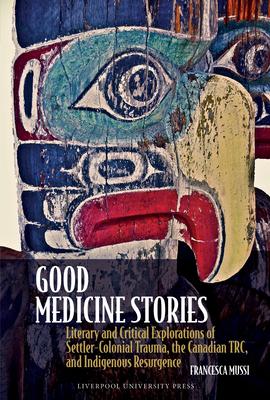Ebook available to libraries exclusively as part of the JSTOR Path to Open initiative.
Addressing the history, impacts, and legacies of the Indian Residential School system, the Canadian Truth and Reconciliation Commission is one of the few commissions to have been established in a long-standing Western liberal-democratic reality such as Canada's. It thus becomes paramount to examine the extent to which the TRC's core principles of truth-telling, restorative justice, and reconciliation engage in productive dialogue with the settler-colonialcontext of Canada and, particularly, with Indigenous philosophies and epistemologies. Good Medicine Stories does exactly that through the lens of fiction. Interweaving Indigenous, settler-colonial, trauma, and gender studies on the one hand and intersecting literary, political, historical, and cultural approaches on the other, Good Medicine Stories explores the capacities of Indigenous fiction for challenging and amplifying the work carried out by the Canadian TRC. Through analysis of a unique selection of Indigenous contemporary literary texts that were produced during and after the completion of the Canadian Commission, the book shows the role of fiction in keeping the dialogue on truth, justice, and reconciliation between Indigenous and non-Indigenous peoples open and relevant to our present and our future. It also demonstrates the role of Indigenous fiction in foregrounding Indigenous healing, spiritual regeneration, and resurgence.
